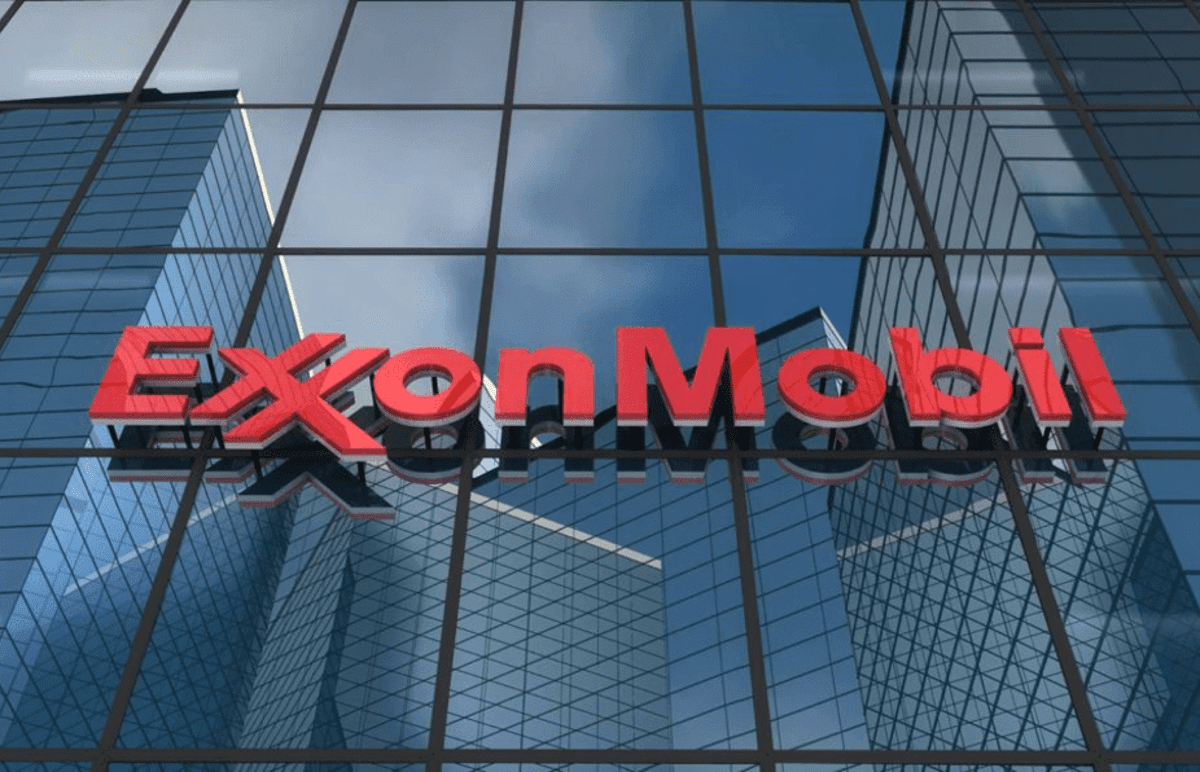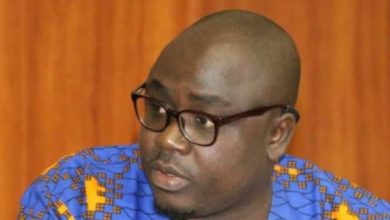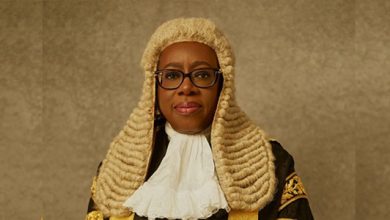ExxonMobil in multiple layers of ownership, tax havens controversy

Investigations have revealed that ExxonMobil affiliates in Nigeria are surrounded by controversy over multiple layers of ownership and tax haven issues which are currently being investigated secretly by top tax officials of the Federal Inland Revenue Service ( FIRS) with the support of Nigerian National Petroleum Corporation ( NNPC) a major Joint Venture ( JV ) partner in the upstream sector of Nigeria’s oil and gas industry.
It will be recalled that the Company’s offices in Lagos, Akwa Ibom and Rivers States were shut down for up to ten weeks in 2018 because the company was unwilling to abide by the ruling of the Supreme Court against it in favor of hundreds of security personnel, after nearly twenty years that the company used legal maneuvers to deny that they were its employees, despite the fact that it recruited, trained and issue them employment letters. That shut-in,one of the longest in recent history, resulted a loss millions of dollars of revenue for NNPC and Nigeria, as did several other reckless disruptions that have become recurrent in the company’s operations.
Nigerian NewsDirect gathered that the recent decision by tax authorities to investigate revenue inflow of foreign players in the oil and gas industry follows higher revenue earned by telecom companies over impressive result of the FIRS during the first half of the year affected by COVID-19 lockdown.
According to an industry official, the investigation of upstream players on getting higher income from them follows recent legal successes against some of the upstream players in Nigeria’s courts which has become an eye opener for tax officials on how these companies are escaping tax payment. This, we gathered will become issues of discussion by Federal lawmakers with the submission of a new Petroleum Industry Bill ( PIB) in August 2020 to the NationalAssembly.
Also, tax officials are discussing issues on the sideline of the ongoing annual conference of the Chartered Institute ofTaxation of Nigeria ( CITN) on how tax officials need to collaborate with the federal lawmakers for new laws that will help to bring upstream players more under the control of Nigeria’s government to check capital flight through papers obtained by these companies at tax haven countries.
For instance, officials are asking critically the questions such as if a foreign company doing business in Nigeria is above Nigerian law? Can a multi-national corporation be sued in a Nigerian court for illegal actions done in the country? Should a corporation which is publicly quoted in a foreign country be shielded from being called to account under Nigerian law simply because it has created a web of private shell companies in exotic tax havens, as a multilayered buffer between itself and a private subsidiary in Nigeria? Should global giants be allowed to take refuge in a maze of shell companies in obscure tax havens to dodge legal, fiscal and stock market scrutiny?Is Nigeria, Africa and the developing world not being shortchanged for tax, law, investment and more, if such smokescreens are allowed to stand, however craftily woven?
Exposed!! Popular Abuja doctor revealed how men can naturally and permanently cure poor erection, quick ejaculation, small and shameful manhood without side effects. Even if you are hypertensive or diabetic . Stop the use of hard drugs for sex!! It kills!
The questions also include whether it is right for a global corporation which is under the securities regulator in its home country to escape the Nigerian stock market regulator because it has conveniently hidden its business in a private company in Nigeria, or uses offshore alibis to escape legal and fiduciary challenge for its actions here?How would it be if the situation was flipped?
Investigation revealed that ExxonMobil for years sought to drag the Nigerian National Petroleum Corporation to US courts for mere commercial arbitration over oil lifting. In one instance, the ExxonMobil corporation which all but disowned its Nigerian subsidiary had no problem claiming that NNPC is one and the same as Nigerian government itself! No surprise, those gambits failed dramatically. The company has continued to battle the national assembly for years when it sought to compel the corporation to register its corporate existence with the Corporate Affairs Commission. And yet, peers such as Total have simple, easy to regulate structure that consolidates its subsidiaries, unlike ExxonMobil’s smoke-and-mirror arrangements by which it seeks to puzzle not just the legislature, the stock market regulator, if not the courts.
However, we gathered that several of the shell companies that Exxon listed as buffers between itself and the Nigerian subsidiary are allegedly registered in Delaware, a well-known tax haven. A Transparency International report on Delaware shell companies describes the location as ”a place where extreme corporate secrecy enables corrupt people, shady companies, drug traffickers, embezzlers and fraudsters to cover their tracks when shifting dirty money from one place to another. It’s a haven for transnational crime”.
However, Nigerian NewsDirect gathered that some of these questions above were some of the crucial questions which Mr. Paul Arinze, a Nigerian corporate executive,put to the test through a suit against the US giant ExxonMobil Corporation,and its subsidiary,before Hon Justice O.A. Obaseki-Osaghae of the National Industrial Court of Nigeria, siting in Lagos.
Her Lordship recently issued a landmark ruling against ExxonMobil’s defense in the suit, where it soughtnot to be joined in the suit with its subsidiary Mobil Producing Nigeria Unlimited as co-defendant. By that ruling handed down on Tuesday September 29,ExxonMobil suffered a major setbackagainst its historical claim that, as a global corporation headquartered in the US, it cannot be sued in Nigeria, a ruling of significant impact on the conduct of multinationals operating in Nigeria and other developing countries in Africa.
In a bid to establish an alibi ExxonMobil’s defense listed chains of offshore shell companies in far-flung places, and claimed that it had no business “whatsoever” in Nigeria, which then raises the question of who exactly Nigeria has entrusted with the operation of its critical oil assets?How should NNPC react to the revelation that the entity they’re bed with is a disjoined tail of a serpentine labyrinth, a contraption so hard to pin down, one they cannot sue?
A critical analysis by legal experts of that ruling and its antecedents reveals a lot about the questionable practices of ExxonMobil and others like it, a pattern of dodging fiscal, legal, regulatory and stock market scrutiny. It also signposts the maturing of Nigerian judicial system in a globalized world, a precedent that takes a continental significance in the light of increasing unification of African economies and markets. By its effort to use offshore paper companies in murky tax havens to build a defense, ExxonMobil also revealed a practice that should draw the attention of securities and tax regulators in the US and everywhere else they operate. One would recall that Shell’s manipulation of reserves filings in Nigeria about twenty years ago precipitated SEC investigations in the US and eventually led to the sacking of almost the entire leadership of the parent corporation in UK and the Netherlands.
In this instance, the plaintiff had sued the Exxon’s US parent along with the Nigerian subsidiary, alleging illegal and malicious actions against him for declining to endorse management decisions he considered against the law, human rights or the interests of the public, having previously petitioned the Minister of State for Petroleum Resources in 2018 aboutthe company’s “systemic intimidation of and discrimination against Nigerians” and other alleged human rights abuses.
ExxonMobil, through its counsel Fabian Ajogwu SAN, had challenged the Court’s jurisdiction and sought not to be joined in the case against its subsidiary. The corporation argued that any litigation against it should have been filed in the US where the company has its headquarters. Additionally, the Corporation submitted exhibits claiming that the Nigerian subsidiary is owned through six layers of offshore companies in different jurisdictions and that it is “neither incorporated nor carries on business in any manner howsoever in Nigeria” and has “no physical presence or operations in Nigeria”.To back up their defense, the corporation’s presented a complicated diagram showing a confusing web of ownerships, in some cases quite hard to follow, with companies strung across several continents and obscure islands.
Dismissing their objection, Justice Obaseki-Osaghae affirmed that the court had proper jurisdiction on the matter since the Nigerian Constitution confers on it the authority to adjudicate on industrial matters. In the judgement, the honorable judge stated: “it is clear from the claims and pleadings that the case against the 2nd defendant (ExxonMobil) falls within the jurisdiction of this Court” and that there is no feature in the case which prevents the court from exercising its jurisdiction” and accordingly, ordered that the case proceed to hearing.
He said that beaming searchlight on upstream players by tax officials and legal experts involved in PIB at the National Assembly will help to have greater legal control by the government . This, he said was also informed by recent losses by ExxonMobil in two similar efforts it made to avoid being held legally accountable for its actions in Nigeria. In another judgement also by the Industrial Court in a case brought by Mr. James Ebede against the company and its US parent in 2019, the court equally dismissed the corporation’s claim that they could not be sued in Nigeria. Before that, in a 2018 case cited by the plaintiffs counsel Mr. Emeka Ozoani SAN, the Supreme Court of Nigeria had equally ruled against ExxonMobil’s objection to the suit brought against them by HRH Obong (Dr) Effiong Archianga, the traditional ruler of the community in Akwa Ibom State where the company produces oil. In his submission Mr. Ozoani SAN had argued that no amount of layering should prevent the company from being regulated or sued for any illegal action in Nigeria.
”The latest Industrial Court ruling extends a streak of judicial reprimand against a pattern of conduct by ExxonMobil US parent and main Nigerian subsidiary company,” he alleged.
He also alleged that the corporation usually attempts to hide under layers of offshore shell companies in tax havenswhen facing regulatory obligations both in the United States in the countries where its extractive operations take place, who bear the environmental and other negative impacts.
According to our investigation,the HRH Dr Archianga won a case against ExxonMobil at the Supreme Court in pursuing justice for the rights of its community. The new PIB we learnt will help to protect employees and increase revenue for Nigeria as against technicalities being employed by upstream players to manipulate regulatory and legal accountability.
For instance, he disclosed that three recent court rulings in as many years against Exxon’s attempt to buffer itself with a series of shell companies clearly shows a judicial consistency against the corporation.
“NNPC as a senior partner, the tax authorities and other regulators are now concerned about this multilayered shell-company structure which is reminiscent of the famous Panama Papers,” he lamented.
It would also be recalled that, before the likes of MTN and Stanbic IBTC listed on the Nigerian Stock Exchange, ExxonMobil and others had for years resisted the groundswell of policy directives to join the Nigerian stockmarket, a move that would have provided Nigerian investors a viable vehicle and also given the Nigerian regulators some oversight in the interest on the Nigerian economy. Lack of such investor access and oversight continues to allow ExxonMobil and it ilk the opportunity to offshore jobs and projects carry on outrageous transfer pricing practices and shortchange the Nigerian tax system. It is hard to see why a company that is quoted in its home country if it means well, would continue to evade proper integration in stock market, industrial law and other systems that should ground a legitimate corporate citizen in the national economy. Nigerian regulators sure have a lot of work to do in this regard.
Efforts made to get reaction from Mobil Producing Nigeria proved abortive as there was no response to text messages, calls and email sent to the Public Affairs Manager Mr Ogechukwu Udeaga as at the time of filling this report.




